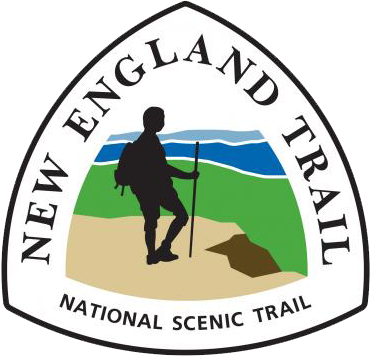Trail Etiquette
Hiking is a great way to spend time outdoors. With 235 miles of trail to explore, the opportunities to get out and enjoy the NET are nearly endless. Whether you are hiking alone or in a group, be sure to follow the written and unwritten rules of the trail. Proper trail etiquette helps instill respect for other trail users, promotes stewardship of the land and ensures the best visit for every user.
The following are the main points of Trail Etiquette followed along the New England Trail:
Much of the Trail passes through private property. These landowners generously allow the trail to cross their land. Please do not leave the trail, camp only in designated areas and keep your pets leashed. Don’t forget, property boundaries are often not obvious, assume you are on private land and be respectful
We all love our furry companions but keep them leashed when you are on the trail. Different jurisdictions have different leash laws. We want all trail visitors to feel comfortable on the trail and all of our landowners and land managers to know that NET users are managing their pets responsibly.
The Trail has a variety of users. Whether you are a hiker, trail runner, snowshoer, or other, uphill travelers always have the right of way. If you are going downhill please step aside for those who are climbing up.
When you encounter other trail users, offer a “hello” or a simple head nod. This helps create a friendly atmosphere. If you approach from behind, announce yourself in a friendly, calm tone to let them know you want to pass. If the trail is wide enough, a simple “on your left/right” does the trick.
Don’t step off the trail unless you absolutely must when yielding. Going off trail can damage or kill sensitive plant and animal species. Always practice Leave No Trace principles: leave rocks, vegetation and artifacts where you find them for others to enjoy.
Volunteers do a tremendous amount of work to keep the Trail open and safe for your use. If you encounter a trail maintainer or a work party, please share your thanks.
Animals need their space, and you need yours. Never leave the trail to get a closer look at an animal. Doing so can damage habitat, and put you and the wildlife at risk.
Spring is mud season on New England trails. If a trail is too wet and muddy, turn back and save the hiking for another day. Using a muddy trail can be dangerous, cause damage to the trail surface, increase erosion, and damage ecosystems that surround the trail.
When hiking in the outdoors, it is best to let nature do the talking. Be respectful and keep the noise from electronic devices at bay. Other users will appreciate your use of headphones and wildlife will appreciate the silence.
Prepare before you go out on the trail and review the Ten Essentials.
Always be aware of your surroundings when using the Trail. It will help keep you and any members of your group safe. It will also help keep wildlife and their habitat safe and healthy.
